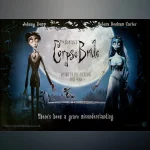Misery (1990)

“Misery,” directed by Rob Reiner and based on Stephen King’s novel, is a psychological thriller that explores themes of obsession, captivity, and the dark side of fandom. The film stars James Caan as Paul Sheldon, a bestselling author, and Kathy Bates as Annie Wilkes, his self-proclaimed “number one fan.”
Plot Overview
The story begins with Paul Sheldon recovering from a car accident in Annie’s remote home after a snowstorm. As his caregiver, Annie quickly reveals her true nature when she discovers Paul has killed off her favorite character, Misery, in his latest novel. Her adoration turns to rage, and she forces Paul to rewrite the story, creating a terrifying dynamic of power and control. Throughout the film, Paul struggles not only for his freedom but also for his life as Annie’s obsession intensifies.

Themes
- Obsession and Fanaticism: Annie represents the extremes of fandom, illustrating how obsession can lead to destructive behavior. Her character serves as a critique of how intense admiration can morph into a controlling, toxic relationship.
- Isolation and Vulnerability: The isolated setting amplifies Paul’s vulnerability. Cut off from the outside world, he faces not only physical captivity but also psychological manipulation, highlighting the fragility of human freedom.
- Creativity and Control: The film raises questions about the creative process and the control authors have over their work. Annie’s demands push Paul into a creative prison, forcing him to confront the conflict between artistic integrity and commercial success.
- Survival and Resistance: Paul’s struggle against Annie symbolizes the fight for survival and the resilience of the human spirit. His resourcefulness and determination showcase the lengths one will go to reclaim autonomy.
Significance
“Misery” stands out as a masterclass in suspense and character study. Kathy Bates’s portrayal of Annie Wilkes earned her an Academy Award for Best Actress, cementing her as one of cinema’s most memorable villains. The film’s gripping narrative and psychological depth continue to resonate with audiences, making it a staple in the horror-thriller genre.
In conclusion, “Misery” is not just a story of physical confinement; it delves into the psychological complexities of fandom, control, and the creative process. Its enduring impact lies in its ability to provoke thought about the darker sides of human relationships and the nature of obsession.
Suggested videos for you:
youtube.com/watch?v=0GoCJ656kTU











